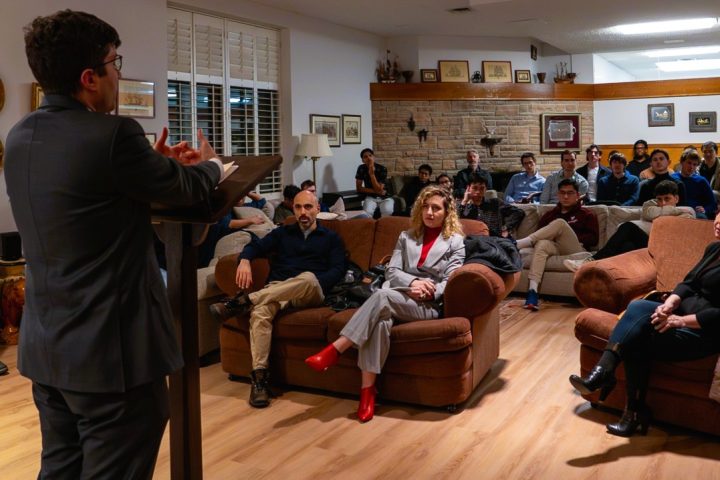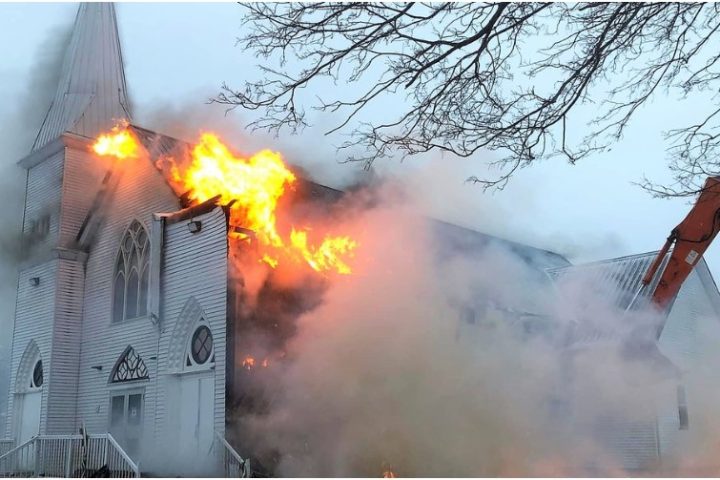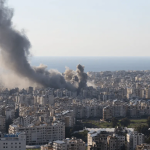Staring death, destruction and starvation in the face on a daily basis, Christians in Gaza are staying steadfast to their commitment to love and serve, sharing ever-dwindling resources with their Muslim neighbours, report employees of two Catholic charities active in the Middle East.
“For example, the Christians sheltering in the Latin compound have decided to stay in northern Gaza, supporting one another and sharing their scarce resources with their Muslim neighbours,” Carl Hétu, executive director of Development and Peace, told The Catholic Register. “It’s a testament to the resilience, faith and hope of the Christian community. This is particularly important during Lent which overlaps with Ramadan for Muslims.”
Representatives of Catholic aid organizations operating on the ground agree that the situation is dire and that the humanitarian catastrophe is more serious than ever.
“The United Nations Office for the Coordination of Humanitarian Affairs has reported that over 31,300 people have been killed and over 73,100 injured in Gaza,” reads a joint statement by Development and Peace-Caritas Canada, Caritas Australia and Caritas New Zealand. “Moreover, starvation has become a very real danger. Already 27 people, including 23 children, have died of malnutrition and about half a million people are facing catastrophic levels of food insecurity.”
Development and Peace and CNEWA (Catholic Near East Welfare Association) are working diligently, despite threats to employees’ own safety, to address the needs of people in acute distress.
“We are doing our best even though our staff is going through extremely difficult times,” said Anton Afsar, secretary general of Caritas International in Jerusalem, which works in partnership with Development and Peace-Caritas Canada, the official international development organization of the Catholic Church in Canada.”
Caritas Jerusalem currently has 61 staff in Gaza of whom 25 are operating in Gaza City and 36 in Rafah governorate. We have nine medical teams, one in Gaza city and eight operating in Rafah in one community-based organization and two tents.”
Looking after the needs of children is one of the key programs. A psycho-social support program for children, alone in the world and deeply traumatized when their parents were killed, has been set up, said Afsar, adding that with so many schools destroyed and an education system that has collapsed, a whole generation of children is facing a future without an education. UNICEF has estimated at least 17,000 children in Gaza have been left unaccompanied or separated from parents since Hamas launched the war with Israel with its Oct. 7 attack.
“What we are doing is important but we can’t replace UNRWA,” he added, referring to the withdrawal of funding by many nations for the UN’s relief agency for Palestinian refugees after Israel released evidence UNRWA staff members took part in Hamas’ attack.
Joseph Hazboun, executive director of CNEWA, agrees the scale of Gazans’ needs is enormous, and that the defunding of UNRWA has added to their suffering.
Despite Canada and Sweden recently resuming funding to UNRWA, its financial situation remains precarious, Hazboun said.
“If the financial situation stays the same, it could be forced to reduce its operations by the end of April,” he said. “This will surely compound the urgent needs of the Gaza strip as the population relies mostly on UNRWA for food, water, shelter and other needs. Not only Gaza will be affected by this crisis, but also UNRWA’s services in other countries where it operates. There are five locations where there are Palestinian refugees — Gaza, the occupied West Bank and East Jerusalem, Jordan, Lebanon and Syria. It would be incredibly difficult to find a quick replacement for the agency, especially at such a time of great need and despair.”
This makes the work of organizations such as CNEWA and Caritas-Development and Peace, although smaller in scale, more critical than ever, the aid organization leaders pointed out. Despite the dangers and difficulties faced by staff, both organizations are working diligently to provide food, medical aid and support to the people of Gaza, regardless of faith affiliation. Christians and internally displaced people are sheltering in two church compounds: Holy Family Church, which includes the church, parish facilities, three convents and care homes, and the Greek Orthodox Church of St. Porphyrius. More than 400 Christian families are sheltering in or seeking emergency food aid there.
CNEWA Canada is launching a campaign to raise $300,000 to help provide food, medicine and clothing to suffering families in Gaza.
“More than two million people are at imminent risk of famine,” Hazboun said. “The vast majority of our people want peace and security. the war between Hamas and the Israeli military has taken an extraordinary toll on families, especially young children.”
A joint statement issued by Development and Peace-Caritas Canada, Caritas Australia and Caritas New Zealand called on the prime ministers of the three countries to work for a permanent end to hostilities by all parties.
Hazboun, Hétu and Afsar pleaded for the prayers of Canadians and urged them to consider supporting their organizations with financial contributions.






